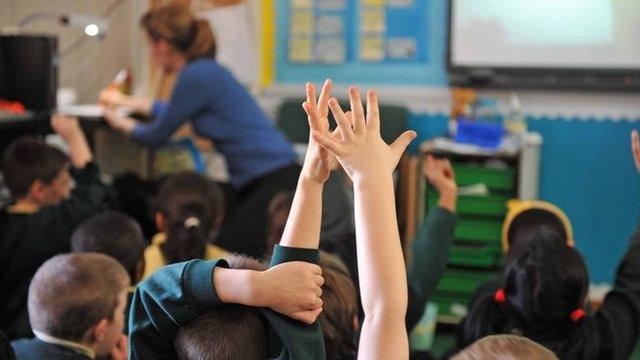Primary school places: Councils issue shortage warning
- Published
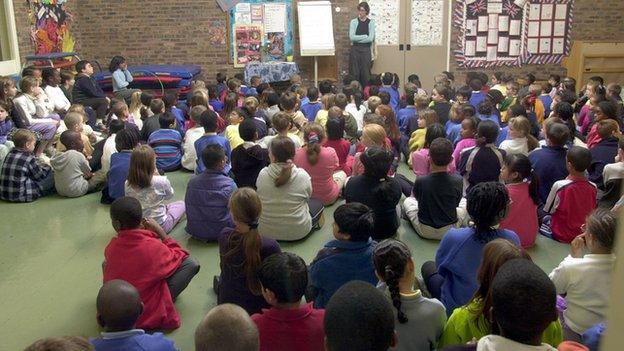
The priority for the next government will be to fund enough school places, say local authorities
Two in five council areas in England will not have enough primary school places for the number of children by September 2016, say council leaders.
The Local Government Association (LGA) said pressure from a rising population was reaching a "tipping point".
Time was running out to avert a "national crisis" over a lack of places, it warned.
A Conservative spokesman said the government had created over 440,000 places and must "stick to the course".
The rising number of pupils needing primary places has seen many schools having to expand and add extra classes, particularly in London and some of England's major cities including Manchester and Bristol.
'Run out of space'
The LGA said schools were "reaching their limits and could soon run out of space and money for extra places".
It warned that whoever formed the next government after the general election would have to tackle an escalating shortage of places.
"Britain is in the grips of a baby boom. We'll have the biggest population in Europe by the end of the century and clearly that's having a lot of pressure on school places," said David Simmonds, the chairman of the LGA's children and young people board.
The local authorities' organisation said that, over the next decade, there would need to be places for an extra 880,000 pupils at a cost of £12bn.
Mr Simmonds told BBC Radio 4's Today programme: "For all the extra children coming through the system we are in a situation now where we are looking at buying land, building completely news schools and that is clearly going to be expensive and the biggest challenge that the new government will have in its education in-tray."
He said recruiting more teachers had not been a problem so far but that in some areas it was "becoming more difficult".
Head teacher Anne Lyons: "We have 90 places to offer and we have about 200 applicants each year"
'Unified planning'
In autumn 2016, the LGA says there will be a shortage of places for pupils wanting to start primary school in two in five authorities.
The following year half of local authorities will be facing a shortfall, says the LGA. By autumn 2018, this will have risen to three in five, according to the councils' forecast.
To prevent pupils being left without places, the LGA says the next government will need to commit sufficient funding and give councils the flexibility to create new schools where they are most needed.
The LGA has been critical of the emphasis on opening free schools, when, the councils argue, they are better placed to make strategic decisions about where new places should be created.
"As we approach a new parliament, the next government must commit to fully fund the creation of all new school places and give councils the powers to open new schools once again, before time runs out and we are faced with a national crisis," said Mr Simmonds.
"Councils face an uphill battle creating places where they are needed when their hands are tied by red tape and they are short of money to do so."
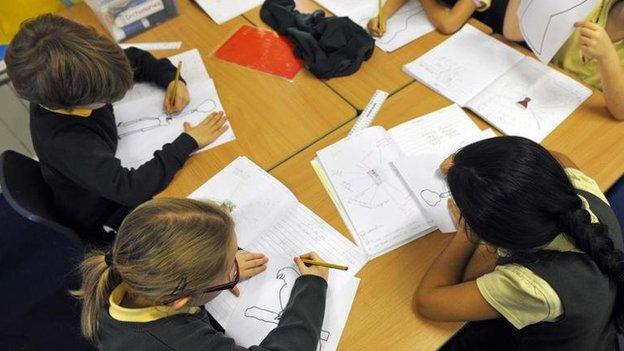
School places will be a big challenge for the future government the LGA warns
Service 'pressure'
Russell Hobby, leader of the National Association of Head Teachers, said there was a need for "unified local planning" to ensure that even with different types of state school there would be enough school places in each area.
Labour's Tristram Hunt blamed the government for "ploughing hundreds of millions of taxpayers' money on free schools in areas where there are no shortages of school places".
He said the pressure on places was contributing to larger class sizes and children having to travel further to school.
The Tory party spokesman said: "The last Labour government failed to plan for the future, cutting funding for 200,000 school places during a baby boom. By contrast, this government has created over 440,000.
"As part of our long-term economic plan we are providing the best schools and skills for young people so that they can fulfil their potential and get on in life, and we must stick to the course."
UKIP's deputy leader and education spokesman, Paul Nuttall, said: "The more people we have living in this country, the more pressure there is on services."
Natalie Evans, director of the New Schools Network which supports the opening of free schools, said that the free schools that are open or are approved will create nearly a quarter of a million extra places.
She said that local authorities already have the power to set up new schools to tackle shortages.
"They just have to partner with an academy or free school to then run them. It is very welcome that nearly a third of councils have already done so creating over 80 new schools."
- Published23 July 2014
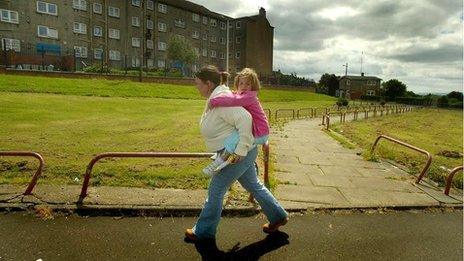
- Published27 February 2014
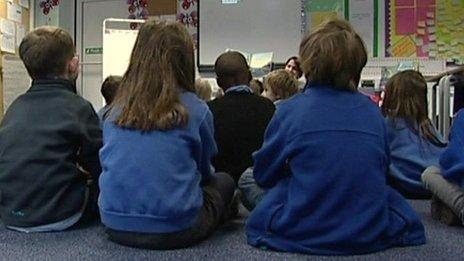
- Published27 August 2014
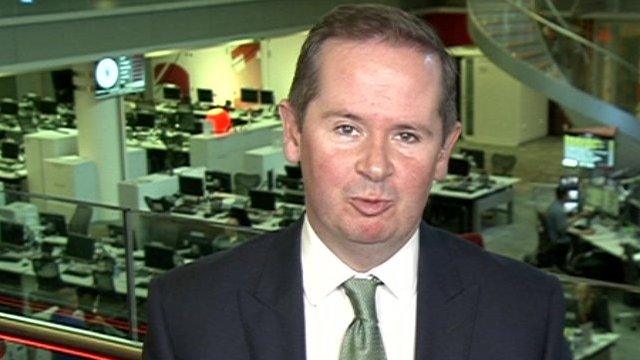
- Published11 May 2014
